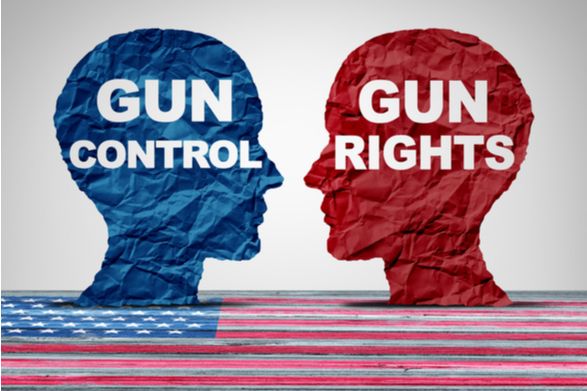In the wake of the two mass shootings this weekend, activists are calling for more gun restrictions. But would that actually help?
As Free Beacon writer Stephen Gutowski reports on Twitter this morning: (emphasis mine)
Reports thus far indicates that the attackers in the recent shootings all passsed background checks to obtain their guns. The universal background check bill passed by the house earlier this year would not have had any effect on what happened.
This means that the shooters didn't have a police record nor had either been adjudicated by a judge as mentally ill–two things that would have shown on the background check and stopped the sale of the guns. What sort of legislation can stop a law abiding citizen from buying a gun? It's a serious question. If a crazy or evil person has been law abiding up until the moment they are not, how do we stop them from legally purchasing a weapon they can use to harm and kill others?
This knotty issue was dealt with in the movie "Minority Report," which didn't really end well from a civil rights point of view.
Outside of science fiction, there's really no easy way to deal with this issue, aside from banning private gun ownership entirely–a solution many want. But for those who respect lawful gun owners and care about the constitutional right to bear arms, what's to be done?
One small solution would be to look at the laws and procedures already in place. To purchase a firearm, every individual must pass a background check. Yet, this system is flawed. Consider what happened in the Parkland school shooting in 2017. While the shooter did have a significant record with police, school officials, and county social workers, he was never charged with a crime (even though many of the calls to police were actionable and he clearly should have been arrested and charged). In fact, CNN reported at the time, that the police were regularly called to the shooter's home:
CNN has found that the Broward County Sheriff's Office actually received 45 calls in the past decade related to the Cruz home, Nikolas Cruz or his brother — even more than previously thought. The documents in question include call logs from the law enforcement agency's "computer aided dispatch" system.
He was even on the FBI's radar. According to Vice:
A YouTube user named Ben Bennight sent a tip to the FBI reporting that another user named “Nikolas Cruz” had commented on one of his posts, saying, "I'm going to be a professional school shooter." He told BuzzFeed News the FBI came to his office to interview him the next day but that he did not hear from them again until a few hours after the shooting, when they called back asking for more information. Both times agents wanted to know if he knew anything about Cruz, which he says he did not.
Yet, none of these incidents were entered into the National Instant Criminal Background Check System (NICS) database–which is the database used for background checks. That's why the Parkland shooter was also able to purchase guns legally.
It's also worth asking, does expanding background checks to private sales and transfers (for example, my grandfather gave me his rifle before he died–that's considered a transfer) make sense? According to a 2019 study in the Annals of Epidemiology, California’s implementation of the “Comprehensive Background Check” was not associated with changes in firearm homicides or suicides. Another law passed at the same time, which prohibited those convicted of violent misdemeanors from buying or possessing a firearm, also had no impact on firearm homicides and suicides.
It's understandable that people want something–anything!–done to stop these mass shootings. But we need to examine the laws and procedures already on the books to see what's working before we layer on more laws that might actually make it harder for law abiding citizens to purcahse firearms.


